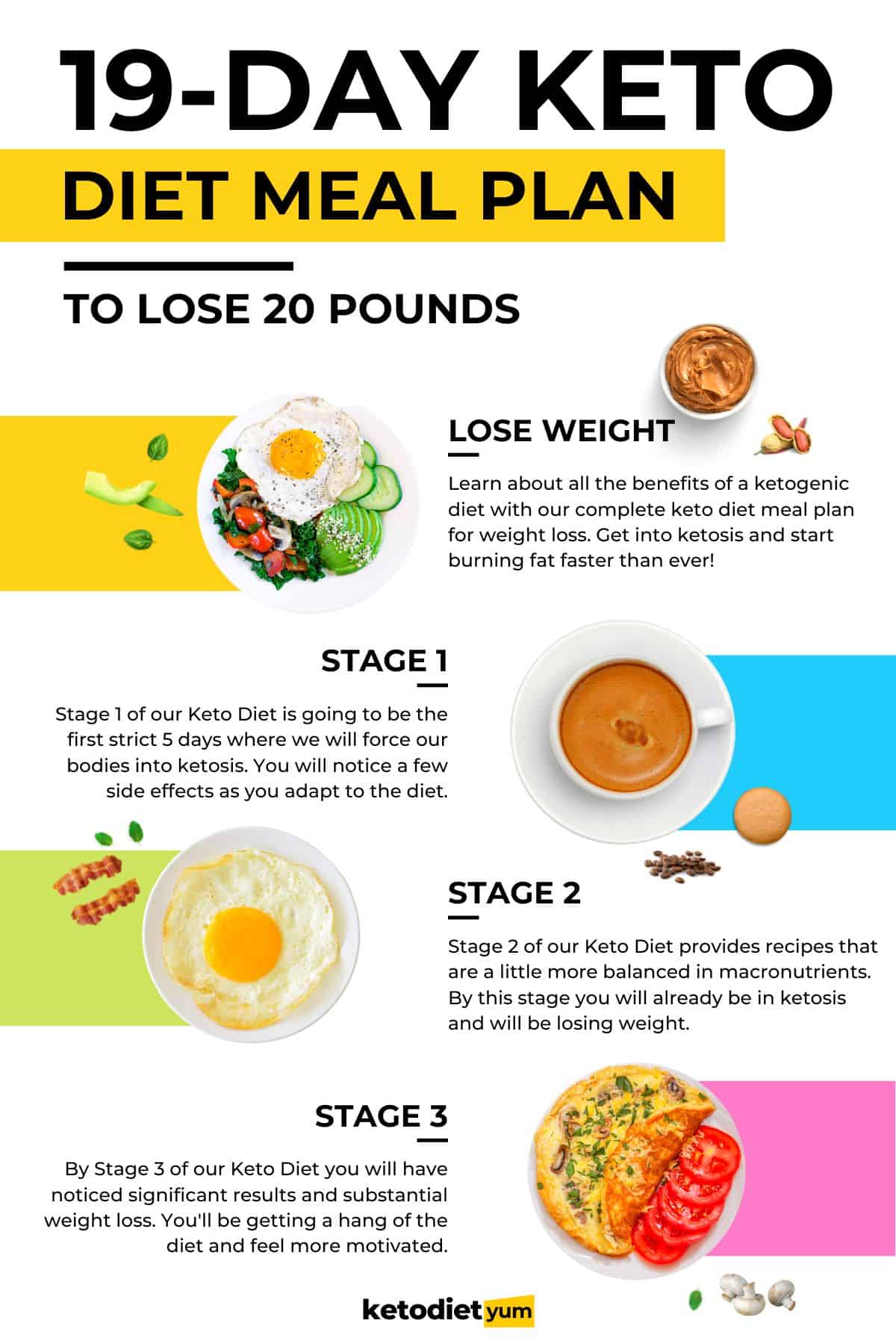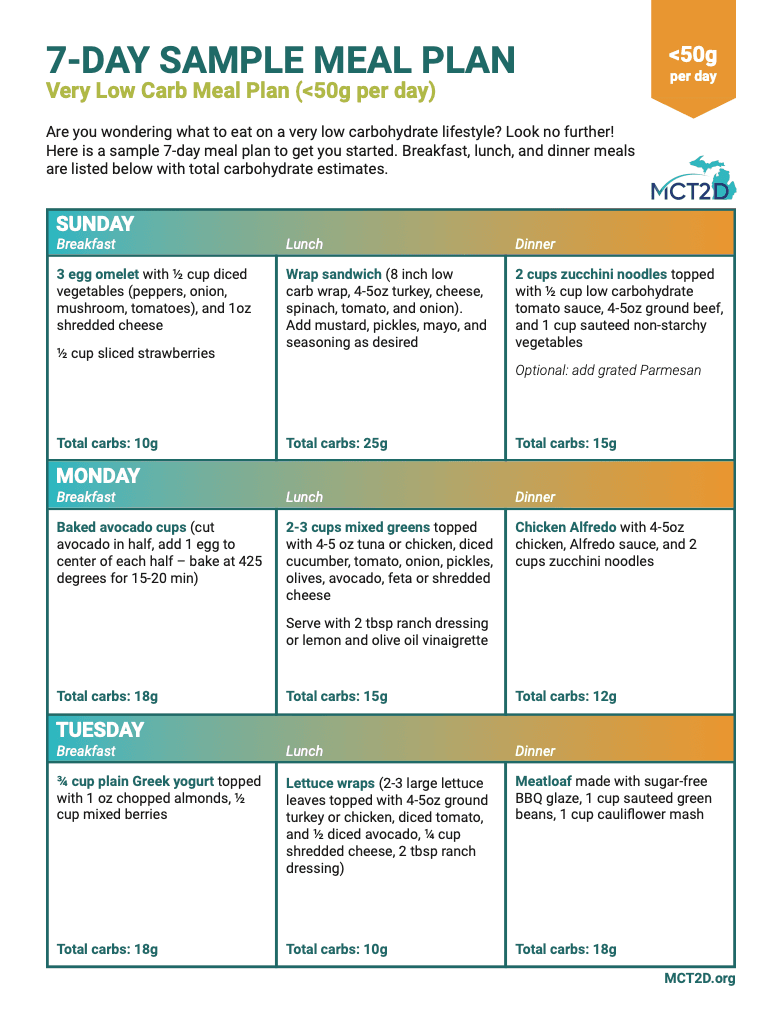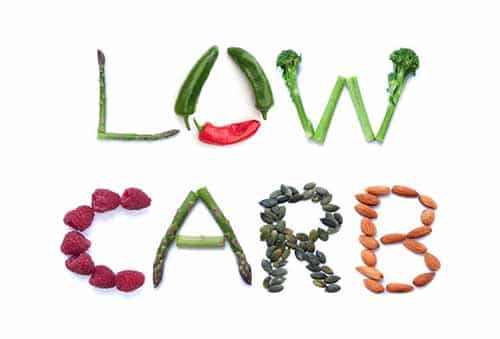Low Carb Diet Plan:Get Secret Recipes
A low carb diet plan focuses on reducing carbohydrate intake. It promotes weight loss and improves overall health.
A low carb diet plan restricts foods high in carbohydrates, such as bread, pasta, and sugary snacks. This diet emphasizes protein-rich foods, vegetables, and healthy fats. People often choose it to manage weight, control blood sugar levels, and reduce the risk of chronic diseases.
This approach can lead to quicker satiety and reduced cravings, making it easier to stick to the diet. Low carb diets vary in strictness, from moderate to very low carb (keto). It’s essential to choose a plan that fits your lifestyle and health needs. Always consult a healthcare professional before starting any new diet plan.
What Is A Low Carb Diet?
A low carb diet focuses on reducing carbohydrate intake. People choose this diet to lose weight, control blood sugar, and improve overall health. But what exactly is a low carb diet?
Basic Principles
The basic principles of a low carb diet revolve around limiting foods high in carbohydrates. Instead, the diet emphasizes proteins, healthy fats, and vegetables. Here are some key points:
- Limit Carbohydrates: Reduce intake of bread, pasta, rice, and sugary foods.
- Focus on Protein: Include meats, fish, eggs, and dairy.
- Healthy Fats: Add avocados, nuts, seeds, and olive oil.
- Vegetables: Opt for non-starchy vegetables like spinach, broccoli, and cauliflower.
The goal is to reduce insulin levels and encourage the body to use stored fat for energy. This process is called ketosis. It can help with weight loss and improved energy levels.
Here’s a quick table of foods to eat and avoid:
| Foods to Eat | Foods to Avoid |
|---|---|
| Meat, Fish, Eggs | Bread, Pasta, Rice |
| Vegetables (non-starchy) | Sugary Snacks, Sodas |
| Nuts, Seeds | Potatoes, Corn |
Types Of Low Carb Diets
There are various types of low carb diets, each with different rules and benefits. Here are a few popular ones:
- Keto Diet: Very low in carbs, high in fat, moderate protein. Aims to put the body in ketosis.
- Atkins Diet: Starts with very low carbs and gradually increases. Focuses on phases to reintroduce carbs slowly.
- Paleo Diet: Focuses on whole foods like meat, fish, vegetables, and nuts. Avoids processed foods and grains.
- South Beach Diet: Low in carbs and high in protein. Emphasizes healthy fats and lean proteins.
Each diet varies in carb limits and food restrictions. Choosing the right one depends on personal health goals and preferences.
Here’s a comparison table:
| Diet Type | Carb Limit | Main Focus |
|---|---|---|
| Keto | 20-50 grams/day | High fat |
| Atkins | 20-100 grams/day | Phased approach |
| Paleo | Varies | Whole foods |
| South Beach | 50-150 grams/day | Lean proteins |
Understanding these types can help in selecting a diet that fits your lifestyle and health needs.
Benefits Of Low Carb Eating
Low carb diets have gained popularity for their numerous health benefits. By reducing carb intake, individuals can improve their overall health. This eating plan offers various advantages that support a healthier lifestyle.
Weight Loss
A low carb diet can be very effective for weight loss. By cutting carbs, the body uses fat for energy. This leads to faster fat burning and weight reduction. Here are some benefits of low carb eating for weight loss:
- Reduced Appetite: Low carb diets naturally reduce appetite. This helps you consume fewer calories without feeling hungry.
- Increased Fat Burning: With fewer carbs, the body burns stored fat for energy.
- Better Metabolism: Low carb diets improve metabolic health, making it easier to lose weight.
Research shows that individuals on low carb diets lose more weight compared to those on low-fat diets. A typical low carb diet includes:
| Food Type | Low Carb Options |
|---|---|
| Proteins | Meat, fish, eggs |
| Vegetables | Leafy greens, broccoli, cauliflower |
| Fats | Avocado, nuts, olive oil |
Improved Blood Sugar Levels
A low carb diet helps stabilize blood sugar levels. By reducing carb intake, blood sugar spikes become less frequent. This is especially beneficial for people with diabetes or prediabetes. Key benefits include:
- Lower Blood Sugar: Fewer carbs mean lower blood sugar levels after meals.
- Improved Insulin Sensitivity: Low carb diets enhance the body’s response to insulin.
- Reduced Risk of Diabetes: By maintaining stable blood sugar, the risk of developing diabetes decreases.
Studies show that low carb diets can improve HbA1c levels, a marker of long-term blood sugar control. A standard low carb meal plan might look like this:
| Meal | Low Carb Options |
|---|---|
| Breakfast | Omelette with spinach and cheese |
| Lunch | Grilled chicken salad with olive oil |
| Dinner | Salmon with asparagus |
Common Foods To Include
Starting a low carb diet plan can be an exciting journey towards better health. Knowing the common foods to include helps you stay on track and enjoy tasty meals. This guide highlights essential proteins and healthy fats to incorporate into your diet.
Proteins
Proteins are essential for building and repairing tissues. They also keep you feeling full longer. Here are some excellent protein sources for a low carb diet:
- Chicken Breast – Lean and versatile, great for grilling, baking, or stir-frying.
- Salmon – Rich in omega-3 fatty acids, perfect for baking or grilling.
- Eggs – Packed with nutrients, ideal for breakfast, lunch, or dinner.
- Turkey – Lean meat option, suitable for roasting or making ground turkey dishes.
- Tofu – Plant-based protein, great for stir-fries and salads.
Here’s a quick table to help you remember these protein sources:
| Protein Source | Preparation Method |
|---|---|
| Chicken Breast | Grill, bake, stir-fry |
| Salmon | Bake, grill |
| Eggs | Boil, scramble, fry |
| Turkey | Roast, ground |
| Tofu | Stir-fry, salad |
Healthy Fats
Healthy fats are crucial for energy and overall health. They also enhance the flavor of your meals. Here are some healthy fats to include in your low carb diet:
- Avocados – Rich in monounsaturated fats, perfect for salads, smoothies, and guacamole.
- Olive Oil – Excellent for cooking and salad dressings.
- Nuts and Seeds – Great for snacking and adding crunch to dishes.
- Cheese – High in fat and protein, good for snacks and meals.
- Coconut Oil – Ideal for cooking and baking.
Here’s a table to summarize these healthy fat sources:
| Healthy Fat Source | Usage |
|---|---|
| Avocados | Salads, smoothies, guacamole |
| Olive Oil | Cooking, salad dressings |
| Nuts and Seeds | Snacking, adding to dishes |
| Cheese | Snacks, meals |
| Coconut Oil | Cooking, baking |
Also Read:1200 Calorie Diet Plans For Weight Loss! Fast & Easy!
Foods To Avoid
A low carb diet plan helps people lose weight by reducing carbohydrate intake. Knowing which foods to avoid is essential for success. Avoiding certain foods can help you stay on track and achieve your health goals. Below, you will find a list of foods to avoid on a low carb diet plan.
Sugary Items
Sugary items are high in carbohydrates and can spike blood sugar levels. These foods provide empty calories with little to no nutritional value.
Here are some sugary items to avoid:
- Sodas and soft drinks: These beverages are loaded with sugar.
- Fruit juices: Even though they seem healthy, they contain high levels of sugar.
- Candy and chocolates: Most candies and chocolates have a high sugar content.
- Cakes and pastries: These treats are packed with sugar and refined flour.
- Ice cream: A popular dessert that is high in sugar and carbs.
It is also important to check food labels. Hidden sugars can be found in many processed foods. Below is a table highlighting some common sources of hidden sugars:
| Food Item | Hidden Sugar |
|---|---|
| Flavored Yogurt | High fructose corn syrup |
| Salad Dressings | Sucrose |
| Ketchup | Glucose |
Refined Carbs
Refined carbs are processed and stripped of their natural nutrients. These foods can cause rapid spikes in blood sugar levels.
Examples of refined carbs to avoid include:
- White bread: Made from refined flour that lacks fiber.
- White rice: Processed and has most of its nutrients removed.
- Pasta: Typically made from refined wheat flour.
- Breakfast cereals: Often high in sugar and low in fiber.
- Crackers and chips: Made from refined flour and unhealthy oils.
Replacing refined carbs with whole grains can be beneficial. Whole grains retain their nutrients and provide more fiber. Here is a comparison table:
| Refined Carb | Healthier Alternative |
|---|---|
| White Bread | Whole Wheat Bread |
| White Rice | Brown Rice |
| Pasta | Whole Grain Pasta |
Making these swaps can help keep your carb intake low. It also ensures you get essential nutrients.
Sample Meal Plans
Starting a low carb diet plan can be overwhelming. Having a go-to list of sample meal plans makes it simpler. These sample meal plans ensure you stay on track while enjoying delicious, nutritious meals. Let’s dive into some creative and satisfying low carb meal ideas for breakfast, lunch, and dinner.
Breakfast Ideas
Breakfast sets the tone for the day. With low carb options, you can start your morning full of energy and satisfaction. Here are some quick and easy ideas:
- Egg Muffins: Combine eggs, spinach, cheese, and bacon in a muffin tin. Bake until set. Perfect for meal prep.
- Avocado and Eggs: Slice an avocado in half, remove the pit, and fill the center with a poached or scrambled egg.
- Greek Yogurt Parfait: Layer Greek yogurt with a handful of berries and a sprinkle of nuts.
- Smoothie Bowl: Blend spinach, protein powder, almond milk, and ice. Top with seeds and coconut flakes.
Here’s a sample breakfast table for a week:
| Day | Breakfast |
|---|---|
| Monday | Egg Muffins |
| Tuesday | Avocado and Eggs |
| Wednesday | Greek Yogurt Parfait |
| Thursday | Smoothie Bowl |
| Friday | Egg Muffins |
| Saturday | Avocado and Eggs |
| Sunday | Greek Yogurt Parfait |
Lunch And Dinner Options
Low carb lunches and dinners can be both hearty and tasty. These meals will keep you full and satisfied throughout the day. Here are some ideas:
- Grilled Chicken Salad: Toss mixed greens, cherry tomatoes, cucumbers, and grilled chicken with olive oil and vinegar.
- Cauliflower Rice Stir-Fry: Sauté cauliflower rice with vegetables, shrimp, and soy sauce.
- Zucchini Noodles with Pesto: Spiralize zucchini and mix with homemade pesto and grilled chicken.
- Stuffed Bell Peppers: Fill bell peppers with ground turkey, tomatoes, and cheese. Bake until tender.
Here’s a sample lunch and dinner table for a week:
| Day | Lunch | Dinner |
|---|---|---|
| Monday | Grilled Chicken Salad | Cauliflower Rice Stir-Fry |
| Tuesday | Zucchini Noodles with Pesto | Stuffed Bell Peppers |
| Wednesday | Grilled Chicken Salad | Cauliflower Rice Stir-Fry |
| Thursday | Zucchini Noodles with Pesto | Stuffed Bell Peppers |
| Friday | Grilled Chicken Salad | Cauliflower Rice Stir-Fry |
| Saturday | Zucchini Noodles with Pesto | Stuffed Bell Peppers |
| Sunday | Grilled Chicken Salad | Cauliflower Rice Stir-Fry |
Challenges And Solutions
The Low Carb Diet Plan is popular for weight loss and better health. But, it comes with its own set of challenges. Knowing these challenges and having solutions helps you stay on track. Let’s explore some common issues and how to overcome them.
Cravings Management
Managing cravings is a big challenge on a low carb diet. Cravings for sugar and carbs can be intense. Here are some tips to handle them:
- Stay Hydrated: Drink plenty of water. Sometimes thirst is mistaken for hunger.
- Eat More Protein: Protein keeps you full longer. Include lean meats, eggs, and tofu in your meals.
- Healthy Fats: Avocados, nuts, and seeds are good fats. They help curb cravings.
- Fiber-Rich Foods: Vegetables like broccoli and spinach are high in fiber. They help you feel full.
Here’s a simple table of snack alternatives:
| Craving | Alternative |
|---|---|
| Chips | Almonds |
| Candy | Dark Chocolate (70%+ cocoa) |
| Soda | Flavored Sparkling Water |
Mindful Eating also helps. Pay attention to your food. Eat slowly and enjoy every bite. This makes you feel satisfied with less food.
Social Situations
Eating low carb in social settings can be tricky. Parties and gatherings often have carb-heavy foods. Here are some strategies:
- Plan Ahead: Know the menu before you go. Choose low carb options.
- Eat Before: Have a small low carb meal before the event. This prevents overeating.
- Bring a Dish: Offer to bring a low carb dish. This ensures you have something to eat.
- Stay Committed: Politely decline high carb foods. Stay focused on your goals.
Use these tips to navigate social situations:
At Restaurants: Ask for substitutions. Replace fries with a salad. Ask for extra veggies instead of bread. Many restaurants are flexible.
At Parties: Focus on protein and veggies. Skip the bread and desserts. Drink water or unsweetened beverages.
At Family Gatherings: Explain your diet to family. Most people are supportive. They might even make low carb options for you.
Sticking to a low carb diet in social situations is possible. With a bit of planning and commitment, you can stay on track.
Supplements And Nutrition
Following a low carb diet plan can lead to significant changes in your body’s nutritional needs. While cutting carbs can help with weight loss and improve overall health, it is crucial to pay attention to supplements and nutrition. Ensuring you get the right vitamins and minerals can make a big difference in how you feel and perform.
Essential Vitamins
On a low carb diet, certain vitamins become even more important. Vitamin D is vital for bone health and immune function. Since you might not get enough from food alone, consider a supplement. Vitamin B12 is another essential vitamin, especially if you are reducing meat intake. It supports nerve function and energy production.
Here are some key vitamins to keep an eye on:
- Vitamin D: Supports bone health and immune function.
- Vitamin B12: Important for nerve function and energy.
- Vitamin C: Boosts immune system and aids in collagen production.
- Vitamin A: Essential for vision and skin health.
To ensure you’re getting enough of these vitamins, consider these food sources:
| Vitamin | Food Source |
|---|---|
| Vitamin D | Fatty fish, fortified dairy |
| Vitamin B12 | Meat, eggs, dairy |
| Vitamin C | Bell peppers, strawberries |
| Vitamin A | Carrots, spinach |
Mineral Considerations
Minerals are just as important as vitamins, and certain ones need special attention on a low carb diet. Magnesium is crucial for muscle function and energy production. Without enough magnesium, you may feel tired and weak. Potassium helps maintain fluid balance and supports heart health. Low carb diets can deplete potassium, so it’s important to replenish it.
Other key minerals include:
- Magnesium: Supports muscle and nerve function.
- Potassium: Maintains fluid balance and heart health.
- Calcium: Essential for bones and teeth.
- Sodium: Important for fluid balance and nerve function.
Consider these food sources to meet your mineral needs:
| Mineral | Food Source |
|---|---|
| Magnesium | Nuts, leafy greens |
| Potassium | Avocados, spinach |
| Calcium | Dairy, broccoli |
| Sodium | Salted nuts, cheese |
By paying attention to these essential vitamins and minerals, you can ensure your body stays healthy and strong on your low carb journey.

Credit: www.ketodietyum.com
Tracking Progress
Tracking progress is key to success on a low carb diet plan. By monitoring changes, you can stay motivated and ensure you’re on the right path. This section discusses how to track progress effectively, focusing on weight management and health markers.
Weight Management
Weight management is crucial for anyone on a low carb diet plan. Regular tracking helps you see the impact of your efforts. Use a reliable scale to weigh yourself daily or weekly.
- Daily Weigh-ins: Weigh yourself at the same time each day, preferably in the morning.
- Weekly Weigh-ins: If daily seems too frequent, weekly can show more significant changes.
Keep a log of your weight readings. This can be done using a notebook or a digital app. Here’s an example of how to log your weight:
| Date | Weight (lbs) |
|---|---|
| 01/01/2023 | 150 |
| 01/08/2023 | 148 |
| 01/15/2023 | 146 |
In addition to weight, pay attention to other physical changes. These can include:
- Clothing Fit: Notice how your clothes fit. Looser clothing is a good sign.
- Body Measurements: Measure your waist, hips, and chest periodically.
Consistency in tracking helps you see patterns and make necessary adjustments to your diet plan.
Health Markers
Monitoring health markers is as important as tracking weight. These markers give insights into your overall health.
Blood Sugar Levels: For those with diabetes or prediabetes, keeping an eye on blood sugar is crucial. Use a glucometer to check your levels daily.
- Morning Fasting Blood Sugar: Check your blood sugar first thing in the morning.
- Post-Meal Blood Sugar: Measure your blood sugar two hours after meals.
Cholesterol Levels: A low carb diet can impact your cholesterol. Regular blood tests can help track these changes:
- LDL (Bad Cholesterol): Aim to keep this low.
- HDL (Good Cholesterol): Higher HDL is better.
- Triglycerides: Lower levels are preferable.
Another vital marker is blood pressure. High blood pressure can lead to severe health issues. Use a home blood pressure monitor to check your levels regularly.
- Morning Reading: Measure your blood pressure in the morning.
- Evening Reading: Check it again in the evening to see any variations.
Keeping a record of these health markers helps you understand the benefits of your low carb diet and make informed decisions for your health.

Credit: www.mct2d.org
Frequently Asked Questions
What Is A Low Carb Diet Plan?
A low carb diet plan restricts carbohydrate intake. It emphasizes proteins, fats, and vegetables. This helps in weight loss and improves overall health.
How Does A Low Carb Diet Work?
A low carb diet reduces insulin levels. This encourages the body to burn stored fat for energy. It also helps in controlling appetite.
What Foods Are Included In A Low Carb Diet?
A low carb diet includes lean meats, fish, eggs, non-starchy vegetables, nuts, and seeds. Avoid sugars and high-carb foods.
Are Low Carb Diets Effective For Weight Loss?
Yes, low carb diets are effective for weight loss. They reduce appetite and cause more fat burning. Many studies support this.
Conclusion
Embarking on a low carb diet plan can transform your health. It aids in weight loss and boosts energy. Stick to nutrient-rich foods and monitor your progress. With commitment, you’ll see incredible results. Start your low carb journey today and enjoy a healthier, happier life.



